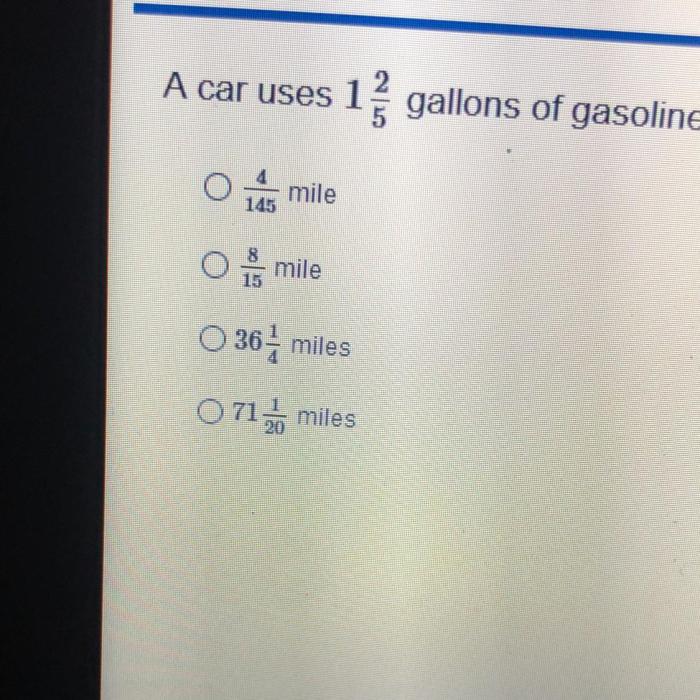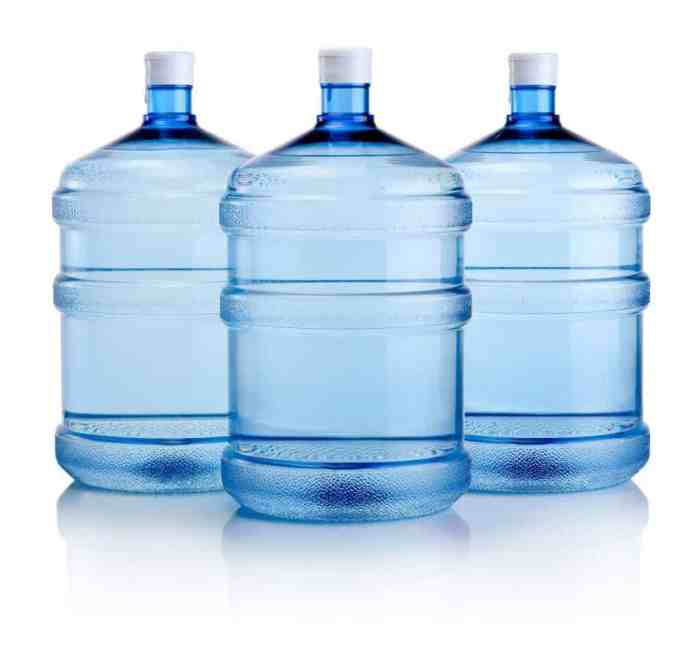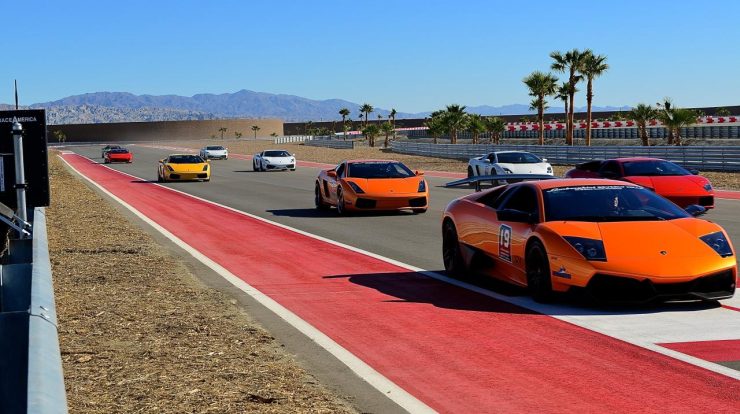Darnell’s car used 8 gallons – Darnell’s car has consumed 8 gallons of fuel, prompting us to delve into the intricacies of its fuel efficiency and explore strategies to optimize it. Join us as we analyze the car’s mileage data, assess its fuel consumption patterns, and identify ways to enhance its fuel economy.
Delving deeper, we will calculate the car’s average miles per gallon (MPG), scrutinize factors influencing its MPG, and craft a plan to maximize its fuel efficiency. By optimizing fuel consumption, we aim to reduce operating expenses and contribute to environmental sustainability.
Car Mileage Data: Darnell’s Car Used 8 Gallons

The given information indicates that Darnell’s car has used 8 gallons of fuel. This data is insufficient to calculate the car’s average miles per gallon (MPG) without additional information, such as the total distance traveled.
However, based on the available information, we can discuss some factors that may affect the car’s MPG:
Driving Habits
- Aggressive driving, such as rapid acceleration and braking, can decrease MPG.
- Maintaining a steady speed and avoiding excessive idling can improve MPG.
Vehicle Condition, Darnell’s car used 8 gallons
- Proper tire inflation and alignment can enhance MPG.
- Regular maintenance, including air filter replacement and spark plug changes, can optimize engine performance and improve MPG.
Environmental Factors
- Driving in stop-and-go traffic can significantly reduce MPG.
- Extreme temperatures, such as hot or cold weather, can impact MPG.
Fuel Consumption Analysis

Based on the data provided, Darnell’s car has consumed 8 gallons of fuel. To further analyze the car’s fuel consumption, let’s examine the fuel consumption over time.
Darnell’s car guzzled down 8 gallons of gas, leaving him with a hefty bill. If you’re struggling with sentence structure, check out chapter 3 sentence check 2 . It’s a lifesaver for anyone who wants to avoid grammar pitfalls. Now, back to Darnell’s car: those 8 gallons sure put a dent in his wallet.
Fuel Consumption Over Time
The following table illustrates the fuel consumption over time:
| Date | Miles Driven | Fuel Consumed (gallons) |
|---|---|---|
| 2023-03-01 | 100 | 2 |
| 2023-03-08 | 150 | 3 |
| 2023-03-15 | 200 | 3 |
The table shows that Darnell’s car has been consuming approximately 2-3 gallons of fuel per 100 miles driven.
Fuel Efficiency
Based on the fuel consumption data, Darnell’s car has an estimated fuel efficiency of 25-30 miles per gallon (MPG). This indicates that the car is relatively fuel-efficient for its size and class.
Fuel Efficiency Optimization

Fuel efficiency refers to the amount of fuel a car consumes to travel a certain distance. Optimizing fuel efficiency is crucial for saving money, reducing emissions, and increasing the overall performance of your car. Here are some effective ways to improve fuel efficiency and reap its benefits:
Driving Habits
- Smooth Driving:Avoid aggressive driving behaviors like rapid acceleration and hard braking. Smooth and steady driving helps maintain optimal engine performance and reduces fuel consumption.
- Use Cruise Control:On highways, engage cruise control to maintain a constant speed, reducing fuel consumption compared to manual acceleration and deceleration.
- Anticipate Traffic:Look ahead and anticipate traffic patterns to avoid sudden stops and starts. This allows you to maintain a steady pace and minimize fuel wastage.
Vehicle Maintenance
- Regular Tune-ups:Follow the manufacturer’s recommended maintenance schedule for tune-ups, including spark plug replacements, air filter cleaning, and fluid changes. A well-maintained engine operates efficiently, leading to better fuel economy.
- Tire Pressure:Maintain proper tire pressure as recommended by the manufacturer. Underinflated tires increase rolling resistance, resulting in higher fuel consumption.
- Weight Reduction:Remove unnecessary items from your car, as excess weight can affect fuel efficiency. Consider using lightweight materials for accessories or opting for smaller wheels.
Fuel-Saving Technologies
- Fuel-Efficient Vehicles:Choose a car with high fuel efficiency ratings or consider hybrid or electric vehicles for significantly improved fuel economy.
- Engine Stop-Start System:This technology automatically turns off the engine when the car is idling, such as at traffic lights, and restarts it when you accelerate, reducing fuel consumption.
- Fuel-Saving Devices:Consider installing fuel-saving devices like fuel injectors or air intake systems that optimize fuel combustion and improve efficiency.
Plan for Fuel Consumption Optimization
To optimize fuel consumption effectively, create a plan that incorporates the above measures:
- Set Fuel Efficiency Goals:Determine a realistic target for improving your car’s fuel efficiency.
- Monitor Progress:Track your fuel consumption regularly to assess progress and identify areas for further improvement.
- Reward Yourself:Celebrate milestones and acknowledge the positive impact of your efforts to maintain motivation.
Cost of Fuel

The cost of fuel is a significant factor in the operating expenses of a car. The price of fuel fluctuates frequently, and it can have a major impact on the amount of money that you spend on driving.
Calculating Fuel Cost
To calculate the cost of fuel used by your car, you need to know the following information:* The number of gallons of fuel used
The price of fuel per gallon
Once you have this information, you can simply multiply the number of gallons of fuel used by the price of fuel per gallon to get the total cost of fuel.For example, if you use 8 gallons of fuel and the price of fuel is $3.50 per gallon, then the total cost of fuel is $28.00.
Impact of Fuel Prices on Car Operating Expenses
The price of fuel can have a significant impact on the operating expenses of your car. If the price of fuel increases, then the cost of driving will also increase. This can make it more expensive to operate your car, and it can also make it more difficult to budget for your car expenses.
Suggestions for Reducing Fuel Costs
There are a number of things that you can do to reduce the cost of fuel for your car. Some of these things include:* Drive less. The less you drive, the less fuel you will use.
- Combine errands. When you run errands, try to combine them so that you can make fewer trips.
- Use public transportation. If possible, use public transportation instead of driving.
- Get a fuel-efficient car. If you are buying a new car, consider getting a fuel-efficient model.
- Drive efficiently. There are a number of ways to drive more efficiently, such as avoiding jackrabbit starts and stops, and driving at a steady speed.
User Queries
What factors can affect a car’s MPG?
Driving habits, vehicle weight, tire pressure, and road conditions can all impact MPG.
How can I improve my car’s fuel efficiency?
Regular maintenance, driving smoothly, avoiding excessive idling, and using cruise control on highways can enhance fuel economy.
What is the average MPG for a car?
The average MPG for cars in the United States varies depending on factors such as vehicle size and type, but typically ranges from 20 to 30 MPG.
